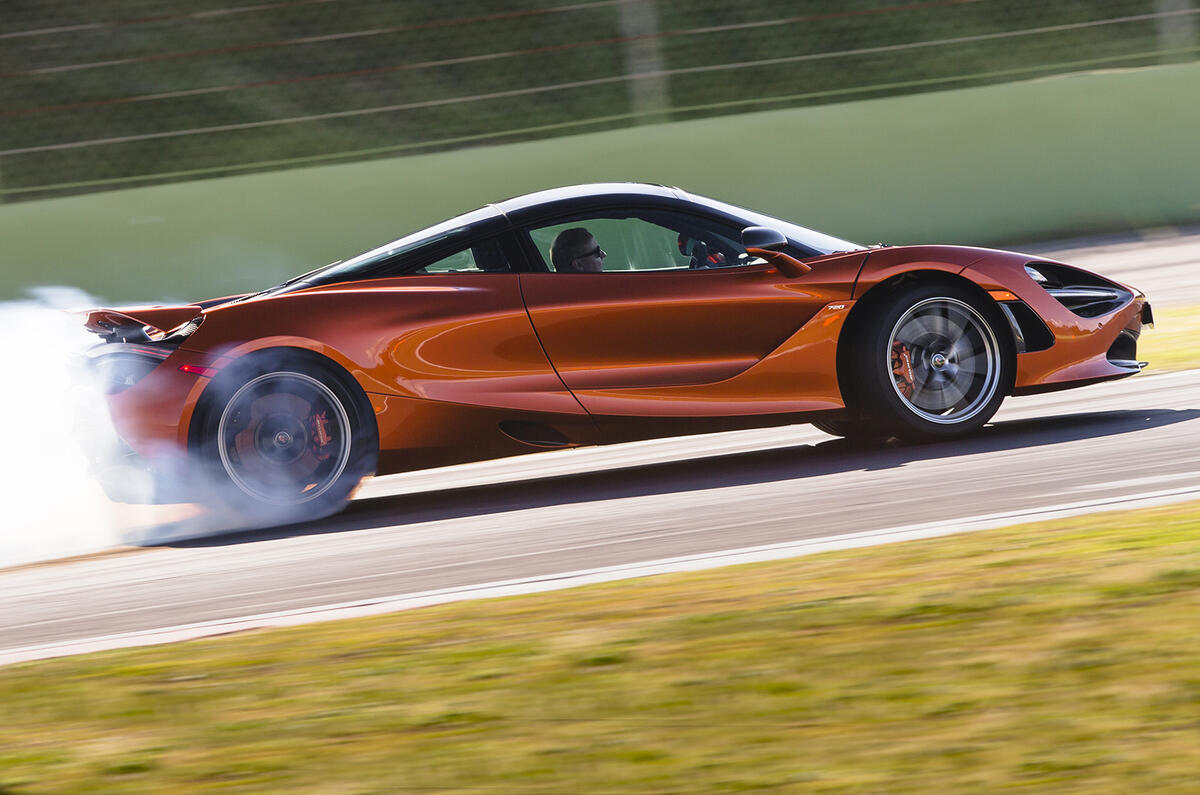McLaren’s doubling of car sales in 2016 over 2015 has led to profits of £9.2m before tax - a rise of 70% year-on-year.
The profit was generated off annual sales revenue of £649.8m, a rise of 44% on 2015. It is the fourth consecutive year McLaren Automotive has been in profit, with the company having been founded six years ago.
“This is further proof that McLaren Automotive’s growth plans are both achievable and sustainable,” said the firm’s chief executive officer, Mike Flewitt. "Investment in R&D and future product of £129.1m - 20% of turnover - reaffirms our commitment to the Track22 Business Plan that will produce 15 new models or derivatives by the end of 2022.”
McLaren sold 3286 cars in 2016, compared with 1654 in the previous year - a rise of 99% - with the largest growth driven by the arrival of the Sports Series range, led by the 570S and 570GT models, which accounted for 2031 sales over the year. The firm introduced a second shift at its Woking factory to meet demand in 2016.
The more expensive and powerful Super Series cars, which include the 675LT Coupe and Spider, accounted for the remaining 1255 sales in 2016. Order banks for the new McLaren 720S, launched in March this year, currently stand at 1500 cars.
McLaren Automotive has targetted annual sales of 4500 cars by 2022, by which point at least half of its models will feature a hybrid powertrain. An all-electric prototype to test the viability of such a model to sit at the top of McLaren’s Ultimate Series range has already been built, with testing commencing last year.
For comparison, Ferrari sold 8014 cars in 2016, a rise of 4.6% year-on-year. Its net profit was £374m. As well as selling cars, Ferrari's income streams include merchandising and engine sales to Maserati, plus Formula 1 engine sales to customer teams.
Jolyon Nash, McLaren’s Executive director - Global Sales and Marketing, acknowledged that such a surge in sales is never likely to be repeated given the firm’s oft-stated commitment never to make a range of cars cheaper than the Sports Series models.
He said: “We will never again see a jump in sales volume of this magnitude, but the reception to the new 720S and new 570S Spider have been incredibly positive and initial orders for both are beyond our expectations.”
North America was McLaren’s largest market, with 1139 sales, while Europe took 996. All of McLaren Automotive’s areas of business grew, with Europe growing the most at 153% and North America growing by 106%.
Notably MSO, McLaren’s bespoke division, grew revenue by 143%, while the firm’s aftersales division grew turnover by 37%.
The 570S Spider is being shown for the first time at the Goodwood Festival of Speed this weekend.




Join the debate
Add your comment
Disagree
For context, McLaren makes nearly twice as many cars now as Lamborghini (2013 cars in 2016 - a self-stated record form them) - a manufacturer like McLaren and Ferrari which actually has been trying to make and sell supercars at volume for decades. They could easily have ended up as a niche company like Hennessy or similar, but they're a fully fledged motor vehicle manufacturer.
The capital investment, manufacturing at scale, business risk, employment factor, brand growth and thousands of brilliant cars on the road... all of these are brand new as part of the 6 year old company... I'd say it's pretty awesome.
Half year sales
AlexF512 wrote:
So, after six years the McLaren Automotive project failed completely and was reabsorbed into the parent company.
Unless of course one subscribes to the view that it was always part of the same company and not actually six years old at all.
Damned lies and statistics